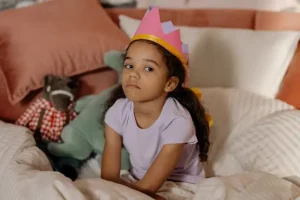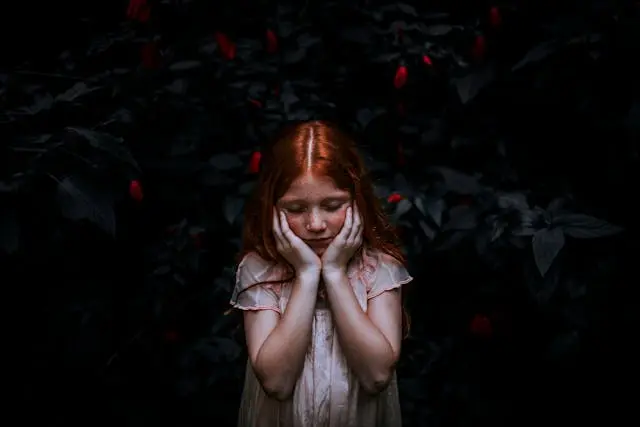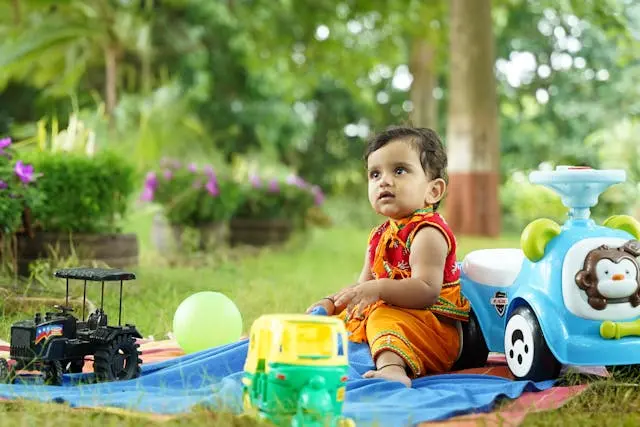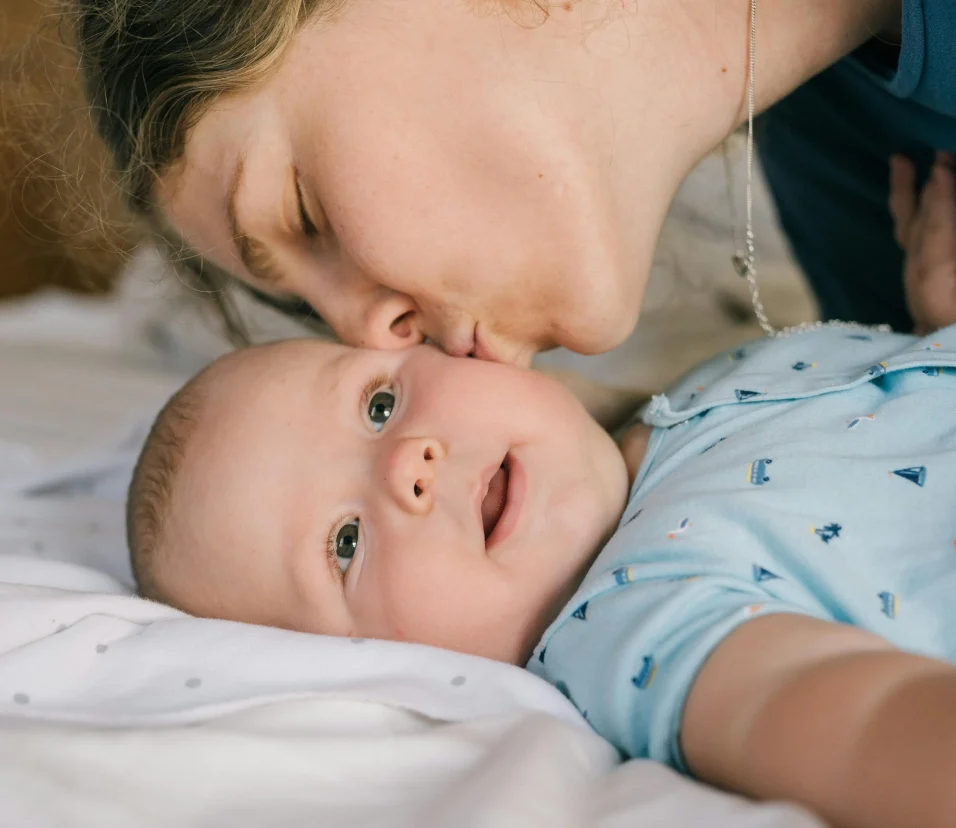Unloved Daughter Syndrome might not get much attention because many people aren’t aware of it. But it’s really important to talk about for many reasons. This guide can be like a light in the dark for those who’ve been hurting and feel trapped. And for those who are just understanding these feelings, it offers helpful strategies and solutions to feel better about themselves. It’s all about reminding everyone of their value and worth.
What is Unloved Daughter Syndrome?

Unloved Daughter Syndrome refers to a psychological condition where individuals experience feelings of neglect, emotional deprivation, and low self-worth due to a perceived or actual lack of affection, validation, or support from one or both parents, typically the mother. This syndrome can have significant impacts on the individual’s emotional well-being and relationships.
Recognizing and addressing unloved daughter syndrome is crucial as it affects countless women who suffer in silence. Different parenting styles can impose negative effects on children, especially daughters. The stigma surrounding mental health, especially issues stemming from familial relationships, often discourages open discussion, leaving many to struggle alone. By shining a light on this syndrome, we empower individuals to seek understanding and healing. This guide provides not only a validation of their feelings but also practical tools for recovery and self-love. Emphasizing the intrinsic worth of every individual, it challenges the deep-seated beliefs and patterns formed by childhood neglect or abuse. Thus, this resource is invaluable, promoting psychological well-being and stronger, healthier relationships.
Before we get started, it’s of utmost importance to recognize the depth of how unloved daughter syndrome can influence most of us. Hence, my guide here is to help all those in need and to shed light on the world about how much it can hurt one when parents don’t give children the attention they seek and deserve. Let me talk about the tough emotions and behaviours and other negative impacts on a daughter growing up facing a situation like this. But, the good news here is that you will also explore much about how to feel better and heal yourself inside out by giving yourself value and worth. Together, let’s learn and heal.
Understanding About Unloved Daughter Syndrome
Unloved Daughter Syndrome refers to the emotional and psychological effects of growing up feeling unloved or emotionally neglected by one or both parents and can also result from father or mother abandonment. It can profoundly impact an individual’s self-esteem, relationships, and overall well-being. Below are some key characteristics of Unloved Daughter Syndrome:
- Chronic feelings of inadequacy and low self-worth
- Difficulty forming healthy relationships and trusting others
- Fear of abandonment and rejection
- Strong desire for approval and validation from others
- Tendency to seek love and acceptance in unhealthy ways, such as through people-pleasing or perfectionism.
- She struggles with expressing emotions and setting boundaries.
- Feelings of anger, resentment, and sadness towards parents
- Persistent feelings of emptiness and loneliness, despite outward success or achievements
Unloved Daughter Syndrome Symptoms not to be Ignored

Persistent Feelings of Inadequacy
Those who have been experiencing unloved daughter syndrome for some time are often tangled with never-ending feelings of low self-esteem. These feelings will certainly be rooted in a lack of emotional validation and childhood nurturing. This situation can hence lead to a prolonged, pervasive phase of unworthiness that may damage one’s adulthood.
Difficulty Forming Healthy Relationships
One other major obstacle that most healthy relationships face during the forming and maintaining stages is the fact that the female partner may be a victim of an unhealthy mother-daughter relationship. Hence, she can struggle or find it difficult to trust her partner or anyone in her relationship. She will most probably undergo fear of abandonment and also feel restricted in their relationship, stressing it even further. The inability to form relationships can further tarnish existing bonds and lead to a lonely and isolated situation.
Desire for External Validation
Those affected by Unloved Daughter Syndrome may exhibit a strong desire for external validation and approval. This often manifests as seeking validation from others to fill the emotional void left by parental neglect. This reliance on external validation can lead to unhealthy behaviours such as people-pleasing and perfectionism.
Emotional Repression and Boundary Issues
Individuals with Unloved Daughter Syndrome may struggle with expressing their emotions and setting boundaries. This can result from a childhood environment where emotions are invalidated or dismissed, leading to a pattern of emotional repression. As a result, individuals may find it challenging to assert themselves and establish healthy boundaries in relationships.
Feelings of Anger and Resentment
Feelings of anger, resentment, and sadness towards one or both parents are common among individuals with Unloved Daughter Syndrome. These emotions may stem from the perceived abandonment or neglect experienced during childhood and can linger into adulthood if left unaddressed.
Strategies in Dealing with Unloved Daughter Syndrome
Practice Self-Kindness
Just as I encourage my preschool students to be gentle with themselves when facing difficulties, individuals with unloved daughter syndrome need to treat themselves with kindness and understanding. Sometimes it’s all about embracing inevitable emotions without judgements and making yourself feel special by offering yourself the same compassion you would extend to a friend.
Seek Professional Help and Support
Similar to how I guide my preschool students even at a young age if encountered with Unloved Daughter Syndrome, professional support can be a reliable source of treatment.
Professionals treating and supporting this syndrome are often well-trained in providing customized and personalized strategies to suit each individual’s requirements. This personalization can be of great benefit as a daughter who’s suffering can feel secure and understood, leading to faster recovery from any traumas.
Set Clear Personal Boundaries
The importance of respecting personal space and boundaries, and establishing clear boundaries, is crucial for unloved daughters. Asserting your needs and boundaries in relationships can foster healthier interactions and promote self-respect.
Prioritize Self-Nurturing
Similar to how children thrive when they engage in activities that nurture their well-being, prioritizing self-care is essential for individuals with Unloved Daughter Syndrome. Whether indulging in hobbies, spending time with supportive friends, or practising relaxation techniques, prioritizing self-nurturing activities can replenish emotional reserves and enhance resilience.
Challenge Negative Thinking Patterns
Reframing negative thoughts in a more positive light can help neglected daughters and certainly can benefit from challenging negative thinking patterns. Using cognitive-behavioural techniques, you can identify and challenge self-critical thoughts, replacing them with more realistic and compassionate perspectives. This shift in thinking can promote a more positive self-image and enhance overall well-being.
Common Misconceptions of Unloved Daughter Syndrome

It’s Just a Phase
Isn’t it really sad when many out there don’t either understand or try not to understand those in need? It’s widespread to hear people say that being unloved and neglected emotionally during childhood will most likely fade away in the future. This isn’t the case as most daughters who’ve suffered from this syndrome have always had lasting effects, especially on their emotional well-being and relationships requiring to be acknowledged.
It’s only a Childhood Issue
Another misconception is that Unloved Daughter Syndrome only affects individuals during childhood and has no impact on adulthood. In reality, the effects of childhood emotional neglect can persist into adulthood, influencing self-esteem, interpersonal relationships, and overall mental health.
It’s Self-Imposed or Exaggerated
There’s a misconception that individuals experiencing Unloved Daughter Syndrome are exaggerating their experiences or bringing it upon themselves. However, the emotional pain and trauma resulting from parental neglect are real and valid, deserving of recognition and support.
It Only Affects Women
While the term “Unloved Daughter Syndrome” may imply a gender-specific experience, the emotional impact of parental neglect can affect individuals of any gender. Men, too, can struggle with feelings of inadequacy, low self-worth, and difficulty forming healthy relationships because of childhood emotional neglect.
It’s Not a Serious Issue
Some may downplay the significance of UDS, dismissing it as a minor issue that individuals should simply “get over.” However, the emotional scars left by parental neglect can deeply impact an individual’s psychological well-being and quality of life, causing acknowledgement, support, and healing.
Other Essential Coping Tips
Listening to Music
Engage in activities such as listening to music that soothes your soul and uplifts your spirits. Music can serve as a powerful outlet for processing emotions and providing comfort during difficult times.
Meditation
Incorporate mindfulness meditation into your daily routine to cultivate inner peace and emotional resilience. Meditation can help you develop an awareness of your thoughts and feelings, allowing you to observe them without judgment and to find greater clarity and calmness amidst life’s challenges.
Yoga and Pilates
Practice gentle forms of exercise like yoga and Pilates to promote physical well-being and reduce stress. These mind-body practices can help release tension stored in the body, improve flexibility, and enhance overall relaxation.
Re-parenting the Inner Child
Engage in re-parenting exercises to nurture and heal your inner child. Offer yourself the love, validation, and care that may have been lacking in your childhood, and allow yourself to grieve the losses you experienced. Through compassionate self-talk and nurturing self-care practices, you can gradually re-parent and heal the wounded parts of yourself.
Creative Expression
Explore creative outlets such as writing, painting, or dancing to express your emotions and foster self-discovery. Creativity can serve as a therapeutic tool for processing feelings, gaining insight into your experiences, and reconnecting with your inner wisdom and resilience.
Travel to Places You Haven’t Been Before
Explore new destinations and immerse yourself in different cultures. Travelling can provide a sense of adventure, freedom, and self-discovery, offering opportunities for personal growth and expanding your perspective on life.
Heal from Within!
In a world where we see more divorces and stressful family lives, our guide on Unloved Daughter Syndrome steps in to offer support to young girls who’ve been carrying the weight of feeling unloved and overlooked for too long. By spreading awareness and sharing practical coping strategies, this guide is certain to make a real difference, especially in communities grappling with the fallout of increasing divorce rates and the resulting emotional neglect of children. Keep sharing what you learn from us!









